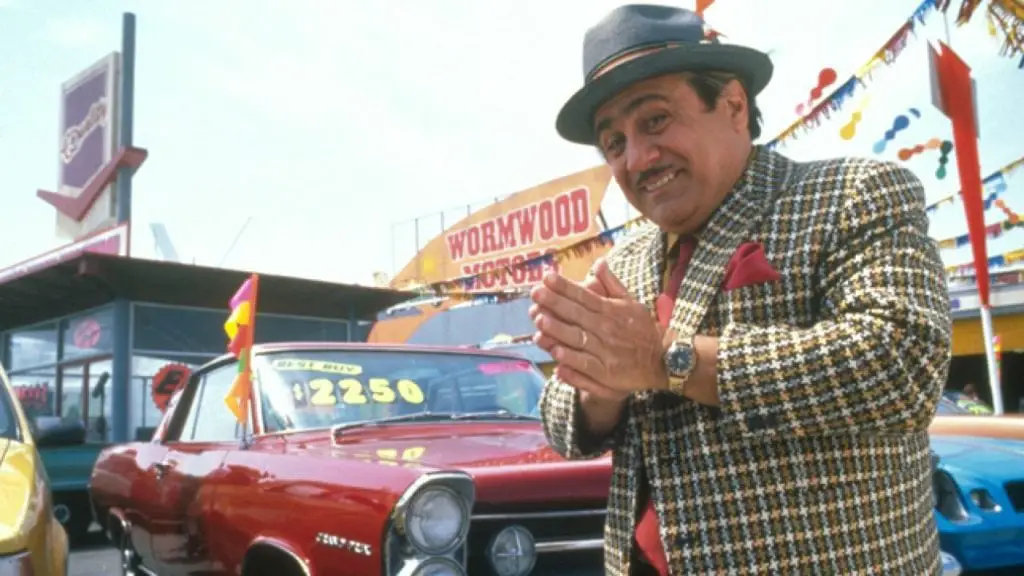New York and Pennsylvania have, in recent weeks, been sending notices to owners of kei trucks and other imported cars that their registrations are being cancelled, despite those cars having been legally imported and registered according to those states requirements.
As the owner of an imported car living in the U.S, I regularly follow news on this topic, so to see this headline was quite concerning. Unfortunately, I had no idea how deep it went.
For starters, New York and Pennsylvania aren’t even first states to start doing this. Earlier this year, Rhode Island and Maine also started sending out similar notices, and California long has required CARB certification on all cars, a proposition that costs owners of imported vehicles tens of thousands of dollars each. Therefore, it is safe to say the actions of NY and PA represent a growing trend of state governments cracking down on the imported classic car community, something I believe is in response to younger buyers increasingly importing 25+ year old Japanese cars that are exempt from federal regulations.
If you ask these DMVs why they are doing it, they either refuse to comment or cite that these vehicles do not comply with Federal regulations, which, as I stated earlier, is not applicable. However, what my research has shown is that none of this is about safety, and it is instead, all about money, power, and control, and under this, things start to make more sense.
Table of Contents
Understanding who is making this happen.

So why are state governments increasingly rescinding registrations on imported cars? Because of the AAMVA, or the American Association of Motor Vehicle Administrators. Like the various Chambers of Commerce scattered around the nation, despite the deceptively official sounding name, they are, in fact, a non-profit corporation that is entirely unaffiliated with the U.S. Government. According to their website’s about page, they describe their purpose for themselves as follows:
“…Its (the AAMVA) development and research activities provide guidelines for more effective public service. AAMVA’s membership includes associations, organizations and businesses that share an interest in the association’s goals.”
In other words, they are an independent, private lobbying group constituting of BOTH public officials and private firms. After looking on their website at the list of associate members, it was quite eclectic, including but not limited to:
1. The Government of the State of Sonora, Mexico.
2. Deloitte (yes, THAT massive consulting firm).
3. Crown Roll Leaf, manufacturing company in New Jersey that makes holographic foil for things such as license plates.
4. NEC, a Japanese electronics company that was once the 4th largest manufacturer of PCs in the world in 1990 but now specializes in the sale of hardware and software to other businesses (think fingerprint scanners, company computer servers, and the WiFi you get in offices).
5. 3M, a company that makes face masks for construction workers.
6. The Hillsborough County, Florida tax collector’s office (the country that Tampa is in);
7. Carmax, one of the largest used car dealers in the US that started life as a subsidiary of Circuit City (Best Buy competitor that died off).
Notwithstanding the obvious ethical issues of public officials participating in a private lobbying firm, the inclusion of a car dealer on this list is interesting. Why would a car dealer seek to have a say in the registration of vintage Japanese cars that they don’t even sell at their outlets? Aren’t these completely different markets?
This is where we get back to the original focus of how some states have been cancelling registrations on imported cars, specifically Japanese Kei Trucks and Mitsubishi Delica 4WD vans. The AAMVA, a cabal whose members include car dealers, government officials, and large multinational corporations, encourages that states adopt their recommendation of what they call “best practices,” which essentially amounts to telling states they need to ban all vehicles that don’t comply with the U.S. Government’s safety and emission standards, naturally written with a broad definition that includes both imported cars and every car sold in the U.S. before 1967, the implication being under this definition, even the original Chevrolet Corvette, an icon of American sports cars, would be illegal to register for road use.
Interestingly, they specifically exempt golf carts from this, which is funny, because the golf cart is, coincidentally, the cliché transportation of choice for rich old people in gated suburban communities. We can’t interrupt that now, can we? The fact that golf carts are less safe than any Kei vehicle? Does not compute, but I digress. When pressed on the matter, these states, like in the case of Rhode Island, cite the AAMVA’s best practices paper when justifying their cancellation of registrations (despite the paper having no legal standing)
All this seems quite strange, especially when considering that these vehicles went through all the proper channels and were legally imported into the U.S, and were registered in accordance with the laws of each respective state without issue, in some cases for years. Why the sudden change of heart? What gives?
Car dealers, greed and control.

A quick background on car dealers in the United States. Officially, they are franchised middlemen that establish agreements with manufacturers to sell their branded cars within a specific geographic area. In practice, there are usually dealers of the same brand within a few towns or in a different part of a larger city, and dealers have consistently argued that this represents competition, and that it benefits customers with lower prices.
However, this is all nonsense, as there aren’t any alternatives for customers in the sales and distribution of new cars. Consequently, without any competition, there is no incentive for dealers to treat customers well. For starters, the car buying experience in America is famously slow. Generally, in my experience, it can take nearly an entire day to actually go through the process of buying a new car from start to finish. Furthermore, extremely high markups are commonplace, with markups on hyped-up, popular sports cars like the C8 Chevrolet Corvette and the Ford Focus RS exceeding the listed sticker price of the cars. And elsewhere in the experience? Bait and switch tactics are par for the course, with multiple salesmen tagging in and out to try to wear you down and extract as much money as possible through attrition. And when it comes to knowledge of the cars they are selling? Little if any. And all of these are standardized, common practice within car dealerships! No wonder car dealers regularly show up on the top of lists of the most hated professions in America (after politicians and lawyers of course!)
The results? A poor buying experience that leads to unsatisfied customers. The business model of a typical dealership and the pay structure of the staff represent the complete opposite of the model in Apple Stores, which are commonly rated highly by customers. Oh, and the icing on the cake? The existence of car dealers, on average, adds 10-15% to the purchase price of a new car! A tall order when wages adjusted for inflation have remained stagnant for American workers since the 1970s. How do dealers continue to survive, especially when they have shown themselves to be inefficient and hated?
Simple. Car dealers have political connections. They are often the largest single donors to mayors, governors, and other politicians, political causes, and campaigns at the local and state levels. They have used that influence to politically entrench themselves so much that even by the 1950s, all 50 U.S. states has some type of law on the books that prohibited automakers from establishing showrooms that they directly own and operate. In contrast, nearly every other country allows for this. Car dealers, thus, are acting like the record companies did in the early 2000s, when Napster and torrenting became popular. They saw this new thing that they didn’t understand as a threat to their bottom line and control, and likewise, believe that any and all products not bought, sold, or maintained through them is a missed sale and thus, profit that they lost. (which is not true both in terms of economic theory and in practice for the music industry). The fact that in America, if you want to participate in economic life, you need to buy and own a car due to lack of viable public transportation options, means that this represents a much larger problem than it would otherwise.
Need proof of this? Look at the mid-1980s, when dealers used their political influence to get federal lawmakers to pass legislation that made it illegal for Americans to buy and import new and used cars from overseas without first getting certification from the federal government. Why? A growing number of Americans were buying Mercedes Benzes from showrooms in Germany as any local German customer would, and importing them to the United States, because doing so meant they could save money on the overall purchase price (which included the cost of shipping), get a higher specced car than U.S. dealers were selling, and have a superior customer service experience all at the same time.
So, what is a car dealer to do? Improve their sales experience and business model? Of course not. Lobbying the Federal Government to stop it is what they did instead, and unfortunately, it worked. And while the resulting policy on paper didn’t create a complete ban on personal car imports, in practice, the tens of millions of dollars it ends up costing per vehicle homologated essentially functioned as such, and killed the market entirely within a year of its enactment in 1988. When combined with the slight loosening of the import laws via the 25 year exemption in the 1990s, this policy, in my view, is likely responsible for helping create both the current classic car bubble of 1980s and 1990s Japanese and European sports cars, AND the used car shortage that is plaguing America at the moment.
35 years on, dealers have shown that they are the same as they have always been. Notably, they have very publicly fought with Elon Musk over the establishment of a direct sales model for Tesla automobiles, and this closely parallels with states cancelling registrations on legally imported vehicles. A movement of people seeking alternatives is growing, car dealers feel threatened and don’t want to change, so they lobby the government to protect their monopoly, it’s essentially the same playbook all over again.
A more sobering theory: A connection with organized crime?

To understand how this all comes together, we need one more piece, and that piece comes in the form of Michael Franzese. A former caporegime of New York’s Colombo crime family and son of the late Colombo underboss (second highest ranking member) Sonny Franzese, Michael entered the life of organized crime as an associate of the Colombo Family after dropping out of Hofstra University in 1971. Coincidentally, according to Franzese’s LinkedIn profile, it was the same year that he became the owner of a Mazda dealership in Hempstead, NY, and he would retain ownership of the Mazda dealership even after he became a “made man” for the Colombo family in 1975. While Franzese would ultimately divest his ownership of Hempstead Mazda in 1979, it is likely that this dealership was one vehicle (no pun intended) that helped to facilitate his rise within the Colombo family’s ranks.
More broadly speaking, car theft rings have historically been a commonplace means of organized crime organizations to generate revenue, and theoretically, owning a dealership would give criminals more options when it comes to transforming the stolen goods into money (via export, dismantling/used auto parts) that can be laundered into clean assets either overseas or in the U.S.
When it comes to the mafia, the types of businesses/organizations that they have sought influence/profit from a predictable pattern:
1. The industry must be in something that is demand-inelastic (everyone needs/wants it no matter what)
2. The industry must be BOTH high-revenue and heavily regulated. Heavy regulation means more possibilities for a syndicate to siphon off a portion of the revenue at the expense of the government, and high revenues mean it is still possible to make a large amount of money in a way that avoids detection.
3. The industry must have strong political connections so as to minimize problems with law enforcement and politicians should anything go wrong.
4. People seeking to do business in this field have few options other than to go to these organizations.
In America, Trade Unions, especially those associated with the construction industry in New York, have long documented links with organized crime, so much so that it has become a pop-culture cliché. In reference to the four traits I listed above, Trade unions have all four of them, but you know who else also has all four of these traits? Car dealers!
While Michael Franzese’s case represents only one confirmed example of this, a car dealership, with its combination of high revenues, legally-sanctioned monopoly power, extensive political connections at the local level, and America being a country with few alternatives to driving everywhere, how deep does this rabbit hole go? Theoretically, they are a perfect front for an organized crime operation to launder money using a legitimate business, and what are the most successful criminal schemes? The ones that nobody ever finds out about.
There are so many possible ways a dealership could be used as a financially lucrative racket, and because of the veneer of legitimacy, few would suspect a thing.
Summary
Getting back to our original question, why are more states cancelling active registrations on cars that had been imported and registered entirely within the bounds of their own laws? Why the sudden reversal? Why the sudden attempt to purge them? Is it because of safety as the AAMVA and State Governments claim?
Not in the slightest. First off, if it was truly about safety, the U.S. government would toss out its own standards in favor of the U.N. standards used in pretty much every other country, since the U.S. has much higher rates of deaths by motor vehicle than the U.K, Japan, and Russia combined. Second, the actions of car dealers show they are incapable of innovation, and will use underhanded tactics to protect their turf, their jobs, and their way of doing things, even at the expense of average consumers. Third: knowing the second point, do dealers have a connection to organized crime?
While I only have one fully documented example on hand, given the type of business dealers operate and the nature of organized crime, it would be very surprising if there weren’t very much more extensive organized crime connections to car dealerships that are simply not known. Fourth: the message that the presence of more and more imported foreign market cars sends to the American public is that there are alternatives, right here and right now, to buying your next car from a dealership.
In my case, as the owner of an imported car, I bought and transported my car to the U.S. partly because I’ve always wanted to try this for myself, but also as a statement of protest against the current system.
The growing trend of importing cars from overseas, similarly to Tesla’s direct sales model, represents a potential threat to the profits and revenue stream of car dealers.
They know they aren’t liked, and their very survival depends on maintaining those political connections, neutralizing threats before the bottom line can be affected, and preventing people from learning about potential options to get something they don’t have. The increasing commonality of importing cars from Japan and the presence of unusual, foreign market cars legally operating on the roads of America is a symbol of rejecting dealer power, and a message to the public that alternatives exist and are here now. In their eyes, such a threat cannot be allowed to exist, and must be crushed, since it represents a threat to their jobs and their entire way of doing business. alternatives exist and can be better.
Would you prefer to buy your next car like you buy an iPhone at the Apple Store? What do you think of car dealers? Would you import a car from overseas yourself? Let me know in the comments down below.
